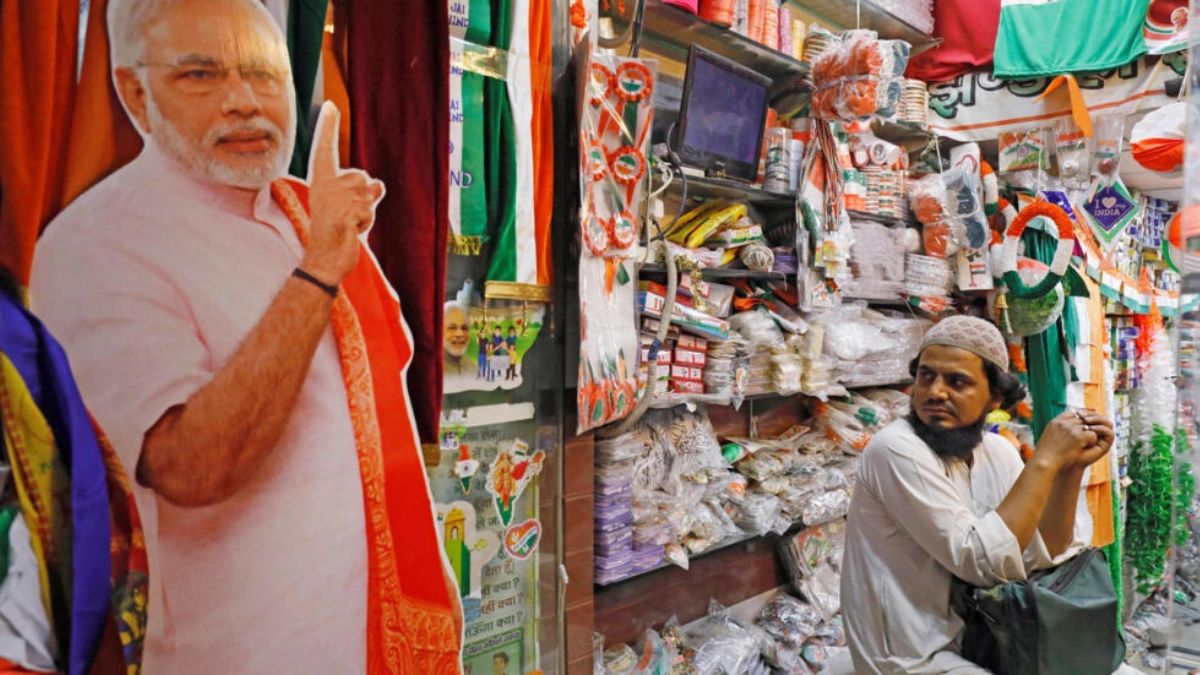China will use artificial intelligence (AI) to disrupt elections in India, United States, and South Korea this year, according to a warning by Microsoft.
The year is lined up with key elections. While a fierce rematch between Joe Biden and Donald Trump is underway in the US presidential elections, India is set to conduct the world’s largest democratic exercise between April and June. The year has already seen key elections in Taiwan and Pakistan. South Korea too is set to have its parliamentary elections on April 10.
For years, China along with countries like North Korea, Russia, and Iran has been accused of running influence operations in the US and other countries to influence voter’s behaviour. The influence operations have often involved disinformation campaigns.
In its warning, Microsoft said that China has already conducted a dry run of its AI-driven election disruption in the Taiwanese presidential election in January of this year. William Lai of the Democratic Progressive Party (DPP), a candidate deeply resented by the Chinese government, won the election.
China will disrupt elections with AI-driven audio, video, memes: Microsoft
China will increase the usage of AI-driven audio and video content mainly memes to disrupt the election by influencing voters.
Microsoft’s Threat Intelligence Team said that China will at a minimum create and distribute AI-generated content that “benefits their positions in these high-profile elections” through social media, reported The Guardian.
Impact Shorts
More ShortsThe report said that the impact of AI-generated content was minor at the moment but that could change. The report added, “While the impact of such content in swaying audiences remains low, China’s increasing experimentation in augmenting memes, videos and audio will continue – and may prove effective down the line.”
Microsoft further said that Chinese state-backed cyber groups are expected to be joined by North Korea in these operations.
The report said that a Beijing-backed group called Storm 1376 was very active in January’s Taiwanese presidential election and pushed a series of AI-generated memes about William Lai, the pro-independence candidate abhorred by Beijing who won the election. These memes spread false accusations against Lai of embezzlement of government funds.
China has interfered in US, Canadian elections over the years
China has been running influence operations in countries like the US and Canada for years. These operations are primarily centred around trying to prevent candidates Beijing perceives as anti-China from winning and peddling a favourable view of China among the target audience. At times, negative perceptions about adversaries like the US have also been fuelled through such operations.
In December 2023, an intelligence assessment released by the US government stated that China tried to shape the outcome of specific contests in the 2022 midterm elections, reported NBC News.
The report said that “China tacitly approved efforts to try to influence a handful of midterm races involving members of both US political parties” with the idea to try to prevent certain candidates perceived as anti-China from winning and support those it deemed pro-China.
In the 2019 Canadian elections, China attempted to funnel around $250,000 in potential interference, said Canadian Security Intelligence Service (CSIS) Director David Vigneault in April. Global News reported the CSIS assessment found that 11 candidates and 13 political staff members were either implicated in or impacted by this planned Chinese operation.
In August 2023, Facebook and Instagram’s parent company Meta said it disrupted a Chinese disinformation campaign which was the “largest known cross-platform covert influence operation in the world”. More than 7,700 accounts and 930 pages on Facebook were taken down.
Meta said at the time that this campaign attempted to spread negative commentary about the US and disinformation about COVID’s origin.
In September 2023, Microsoft warned that operations affiliated with the Communist Party of China (CCP) “have now begun to successfully engage with target audiences on social media to a greater extent than previously observed”.
The report by the company further cautioned that Chinese influence campaigns had started using generative AI to create visual content that was “already drawing higher levels of engagement from authentic users”.
Axios reported Microsoft as saying that China-linked influence operations had been using AI-generated images since at least March 2023. Such images touched upon divisive issues such as gun violence in US.


)

)
)
)
)
)
)
)
)



